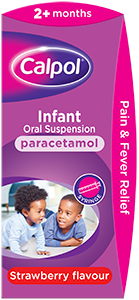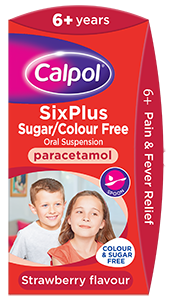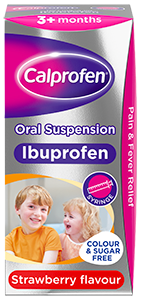Our dedicated sore throats page will look at:
Sore throat causes and symptoms
Sore throat causes and symptoms
Babies and toddlers tend to get sore throats from either:
Learn more
Sore throat causes and symptoms
Sore throat causes and symptoms
Babies and toddlers tend to get sore throats from either:
- Viral throat infections – these are the most common causes of a sore throat
- Bacterial throat infections – these are less common than viral infections
The most common infections that can cause throat pain in children are:
- A cold or the flu – these are common in children and often cause sore throats
- Tonsillitis – they might feel like they have a really bad cold and have red, swollen tonsils
- Glandular fever - this is more common in teenagers than young children, and can last for weeks
- Laryngitis – this is irritation of the voice box and can be linked to cold or flu viruses
- Strep Throat – this is a bacterial throat infection, which is a less common cause of throat pain or throat infection
- Irritants – irritants in the air or allergies can also cause a scratchy or sore throat
Symptoms which can accompany a sore throat
- Pain in the throat – your child might have discomfort when swallowing, so be off their feeds or food
- Less active – you know what to expect from your little one’s energy levels.
- Mild cough
- Temperature – if they have a fever and display other symptoms of a sore throat, it could be a sign of a throat infection
- Dry and scratchy throat – this might be difficult to identify if your youngster can’t talk, but if they put off eating or drinking it may be because they’re uncomfortable swallowing
- Redness – if there’s any redness when you look at the back of your child’s mouth, this could be a sign of a sore throat
- Swollen glands – feel your child’s neck for any swelling - if the glands are inflamed, this could be what is causing a sore throat
It can be hard to know how your baby is feeling when they’re unable to explain clearly what’s wrong.
Dawn Kelly, a health visitor lecturer and mother-of-three, says: “It’s really hard to tell. Older babies might have a croaky voice or point to their throat. With little ones, look at the whole child and any other symptoms. You might be able to spot redness in their throat. If you see white dots and they have a fever, it could be tonsillitis. It they can’t swallow or have difficulty breathing call 999.”
This content was written by healthcare professional Dawn Kelly in 2020. She was paid for her time but does not endorse CALPOL® Products.
Close
How long will a sore throat last?
How long will a sore throat last?
How long a sore throat lasts depends very much on what is actually causing it.
Learn more
How long will a sore throat last?
How long will a sore throat last?
How long a sore throat lasts depends very much on what is actually causing it.
- Cold or flu - Sore throats caused by a cold or flu virus don’t tend to last for long periods and usually get better within a week, meaning your little one will be back to their best before you know it
- Tonsillitis - usually lasts a few days
- Laryngitis – can take one to two weeks to get better
- Glandular fever - can last a lot longer, sometimes a number of weeks
- Strep throat – with treatment, it can usually be cleared up within ten days
While most treatments won’t shorten the length of the sore throat, they can help your little one to feel better and reduce some of the accompanying symptoms.
Close
When to call a doctor
When to call a doctor
Most sore throat symptoms will ease after a week, and they’re rarely anything to worry about. But there are occasions when you may need to seek medical advice.
Learn more
When to call a doctor
When to call a doctor
Most sore throat symptoms will ease after a week, and they’re rarely anything to worry about. But there are occasions when you may need to seek medical advice.
If you suspect your little one might have a bacterial throat infection like strep, get in contact with your GP for further advice and treatment.
Contact your GP or 111 if you’re concerned about their sore throat or if your little one:
- Has a sore throat for more than 4 days
- Has a high temperature
- Is generally unwell
You know your child better than anyone, so if you’re concerned, you should contact your GP. If your child experiences any of the following, call 999:
- They're unable to swallow fluids or saliva
- They have any difficulty breathing
Close
Sore throat remedies and medicines
Sore throat remedies and medicines
While most throat infections normally get better by themselves, there are some home remedies and medicines for sore throats in children and babies to help comfort, soothe and relieve your little one.
Sore throat remedies for kids
Learn more
Sore throat remedies and medicines
Sore throat remedies and medicines
While most throat infections normally get better by themselves, there are some home remedies and medicines for sore throats in children and babies to help comfort, soothe and relieve your little one.
Sore throat remedies for kids
Sore throat home remedies to help reduce symptoms include:
- Keeping hydrated with lots of fluids, preferably water
- Plenty of rest, such as taking them out of school or nursery
- Cool or soft foods can help your little one to eat with less discomfort
- Sucking on ice lollies, ice cubes or hard sweets – taking care not to give anything small to young children (due to it being a choking hazard)
- Avoid smoking around your child or going to smoky places
Dawn says: “Start with cool drinks – though not ice cold – and plain, soft foods. If they’re breast or bottle feeding, you might need to do smaller feeds more often. But in general, keep fluids up, give them plenty of rest and try paracetamol if they’re uncomfortable.”
This content was written by healthcare professional Dawn Kelly in 2020. She was paid for her time but does not endorse CALPOL® Products.
Sore throat medicines
GPs will usually only prescribe antibiotics for a sore throat when the cause is a bacterial infection, as they’re not effective against viral infections. However, there are ways to relieve your child’s symptoms with sore throat treatments from a supermarket or pharmacy.
- Giving your little one ibuprofen or paracetamol (but not both together) to help ease pain and discomfort
- Medicated lozenges or antiseptic spray as recommended by your pharmacist to assist with sore throat relief
Always read dosage guidance on any sore throat medicine you administer to your little one. There are many medicines unsuitable for babies under two months and dosage recommendations can often be different depending on the age of your child. We’re on hand to help you find the correct dosage for your child.
Close
- Keeping hydrated with lots of fluids, preferably water
- Plenty of rest, such as taking them out of school or nursery
- Cool or soft foods can help your little one to eat with less discomfort
- Sucking on ice lollies, ice cubes or hard sweets – taking care not to give anything small to young children (due to it being a choking hazard)
- Avoid smoking around your child or going to smoky places
At the moment it can be hard to know what to do if your child is unwell. It's important to trust your instincts and get medical help if you need it. If you think your child may be suffering from COVID-19 symptoms, visit the NHS website for further information.





Dawn is a qualified paediatric nurse, health visitor and lecturer with over 25 years’ experience. She’s written widely about child health and development and has a wealth of knowledge about childhood illnesses and advising parents on issues such as weaning and sleep. Her three daughters also put her knowledge to the test!
This HCP does not endorse Calpol.